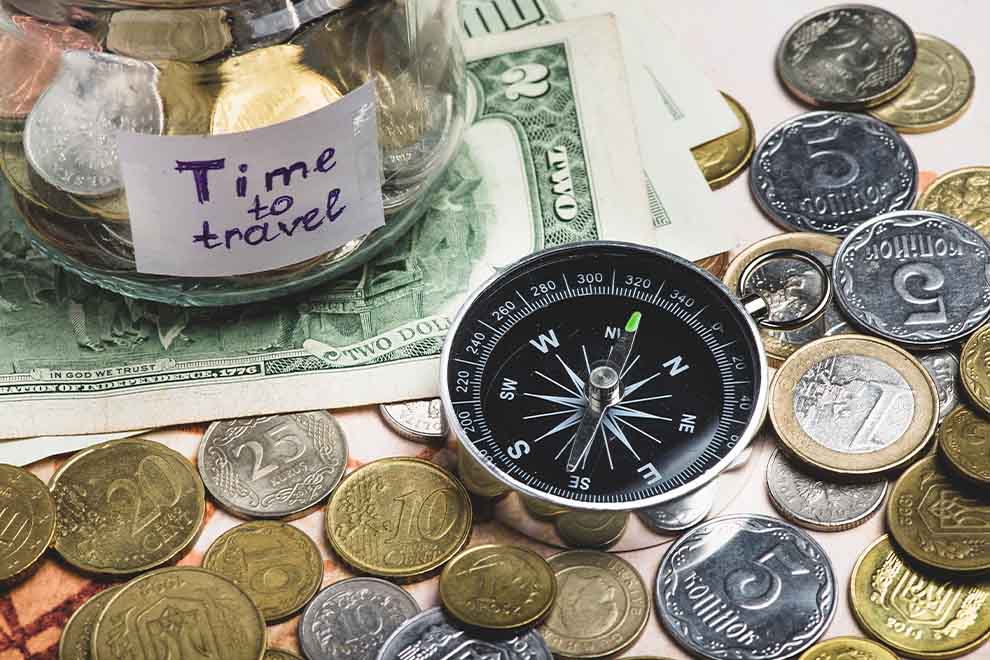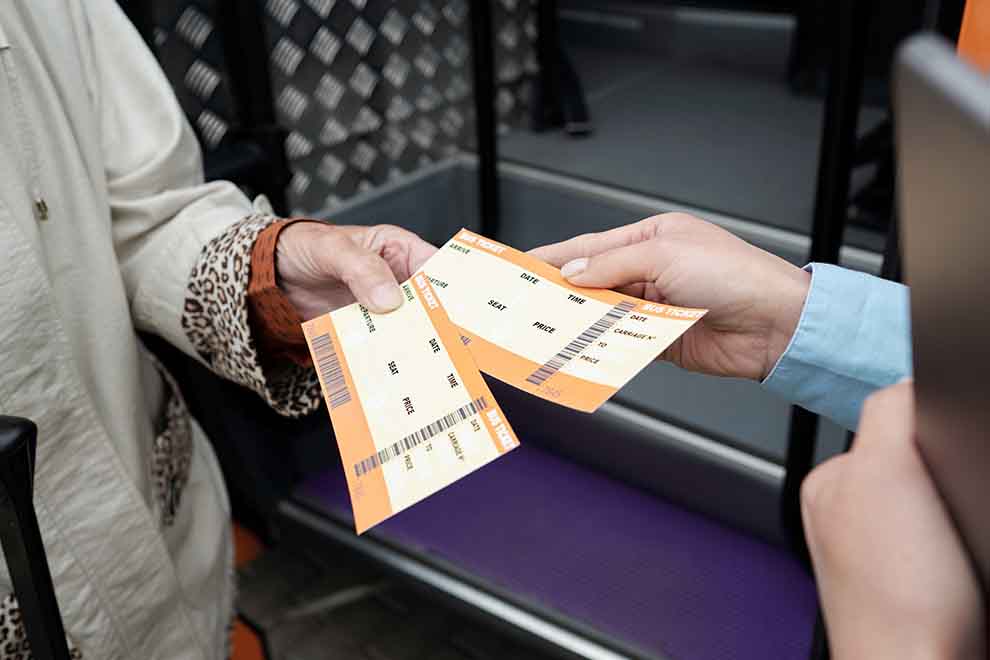Loading quiz...
Traveling is one of the best investments you can make in yourself. Getting to know new places, cultures and flavors renews your energy and broadens your horizons.
But for everything to go smoothly, the secret lies in knowing how to plan a trip financially. With organization, discipline and a few strategies, it's possible to take that dream trip without compromising your budget. Here are some tips to help you plan your trip with peace of mind! ✈️
1. Define the destination and make a realistic budget
The first step in planning a trip is to choose the destination and understand how much you will need to invest. Evaluate the profile of the trip: will it be an international itinerary, such as the United States, Canada or Europe, or a national adventure? Research the average cost of tickets, accommodation, food, local transportation, tours and even shopping.
Use spreadsheets or apps to organize the costs. For example, when planning a trip to Miami, research the cost of tickets on different dates, compare hotels and see how much it costs to rent a car with Happy Tours, which works with recognized rental companies and offers options for all styles of traveler.
Reminder: don't forget to include taxes, insurance and any extra costs, such as parking and tolls.

Your rental car is just a click away! Book online and take advantage of our exclusive offers.
Rent a car now →
2. Make a plan and find out how to save money for traveling 💸
With your budget in hand, the next step is to figure out how to save money for travel. Analyze your income, fixed and variable expenses and define a monthly amount to set aside exclusively for the trip. A practical tip is to create a separate savings account or use financial goal apps, which help you visualize your progress.
If possible, automate the transfer of this amount every month, as if it were an "account payable". This way, you avoid the temptation to spend the money you have set aside. Remember that small daily savings, such as making your own coffee or avoiding impulse purchases, make a difference in the long run.
Oh, and if you're traveling internationally, don't forget to check the local currency and understand how to carry cash or cards during this period.
3. Reduce superfluous spending and reassess priorities
Traveling requires choices. How about rethinking some of your habits while you're planning your trip? Cut down on restaurant visits, postpone purchases of non-essential items and review subscriptions to services you don't use much. If you usually use app-based transportation, evaluate whether it's worth walking or using public transport on some routes.
In addition, involve the family in the planning: everyone can contribute ideas for saving money and making the dream of a trip come true more quickly. This stage is also great for teaching children and teenagers about financial education. 👨👩👧👦
4. Take advantage of promotions, buy in advance and compare 🛫
Those who anticipate are more likely to save money before and during their trip. Keep an eye out for promotions on airline tickets, hotels and car rental. Tools such as price alerts and comparison sites help you identify the best time to buy.
Happy Tours, for example, allows you to book a car without a credit card, with free cancellation and payment at the destination, which adds more flexibility to your planning.
Another tip is to take advantage of special dates, such as Black Friday, to secure discounts. And remember: booking in advance expands your options, especially in high season, when demand is higher.

5. Plan your spending at your destination and put together a smart itinerary
Once you've decided on your destination, research free or cost-effective attractions. Many cities offer museums, parks and cultural events free of charge. Put together a daily itinerary, taking into account travel times and schedules, to avoid unnecessary spending on transportation or late meals.
When renting a car, evaluate economical models and consider sharing expenses with friends or family. With Happy Tours, you can choose from compact vehicles to SUVs and minivans, depending on your needs. Don't forget to calculate costs such as fuel, tolls and parking, especially in big cities.
6. Have a reserve for emergencies and take out insurance 🚑
Unforeseen events can happen, even with the best travel planning. That's why you should include an emergency reserve in your budget - around 10% of the total cost of the trip is a good benchmark. This amount can be used for medical expenses, changes in plans or even to take advantage of an unexpected opportunity.
In addition, consider taking out travel and car insurance, especially for international trips. They offer protection in situations such as accidents, lost luggage and health problems, ensuring greater peace of mind during your trip.
See also how to plan a trip with children and understand everything you need to consider in the process!
7. Take advantage of points programs, cashback and card benefits 🎁
Many credit cards offer points or cashback programs, which can be exchanged for tickets, accommodation and even car rental. Before you travel, check your card's conditions and see if you can earn miles or get discounts from partners. But be careful: use your card responsibly, always within your planned budget.

Extra tip: use technology to your advantage 📱
Apps for finances, maps, translation, currency conversion and itineraries make planning easier and help you avoid unnecessary expenses. Also take the opportunity to follow specialized blogs, such as the Happy Tours blog, which provides up-to-date tips on destinations, itineraries and travel savings.
Planning a trip financially is a task that requires attention to detail, but the result is worth it: you travel more freely, enjoy every experience more and return home debt-free.
With these tips, it's easier to understand how to plan your trip and turn dreams into reality. Count on Happy Tours to make your trip even more practical and economical. Have a good trip! 🚗✨
